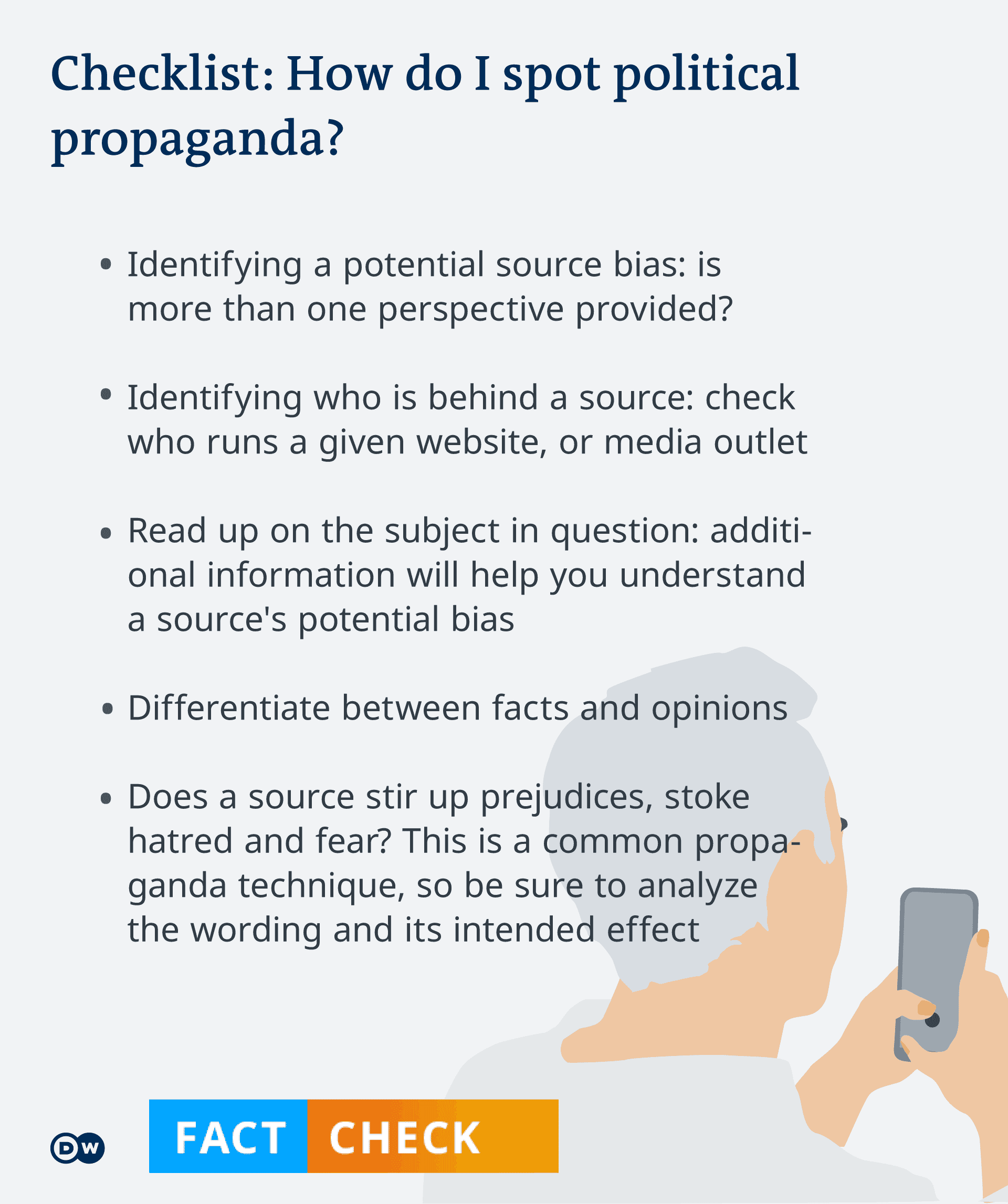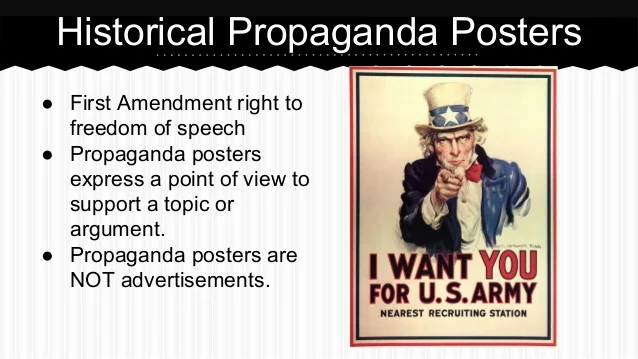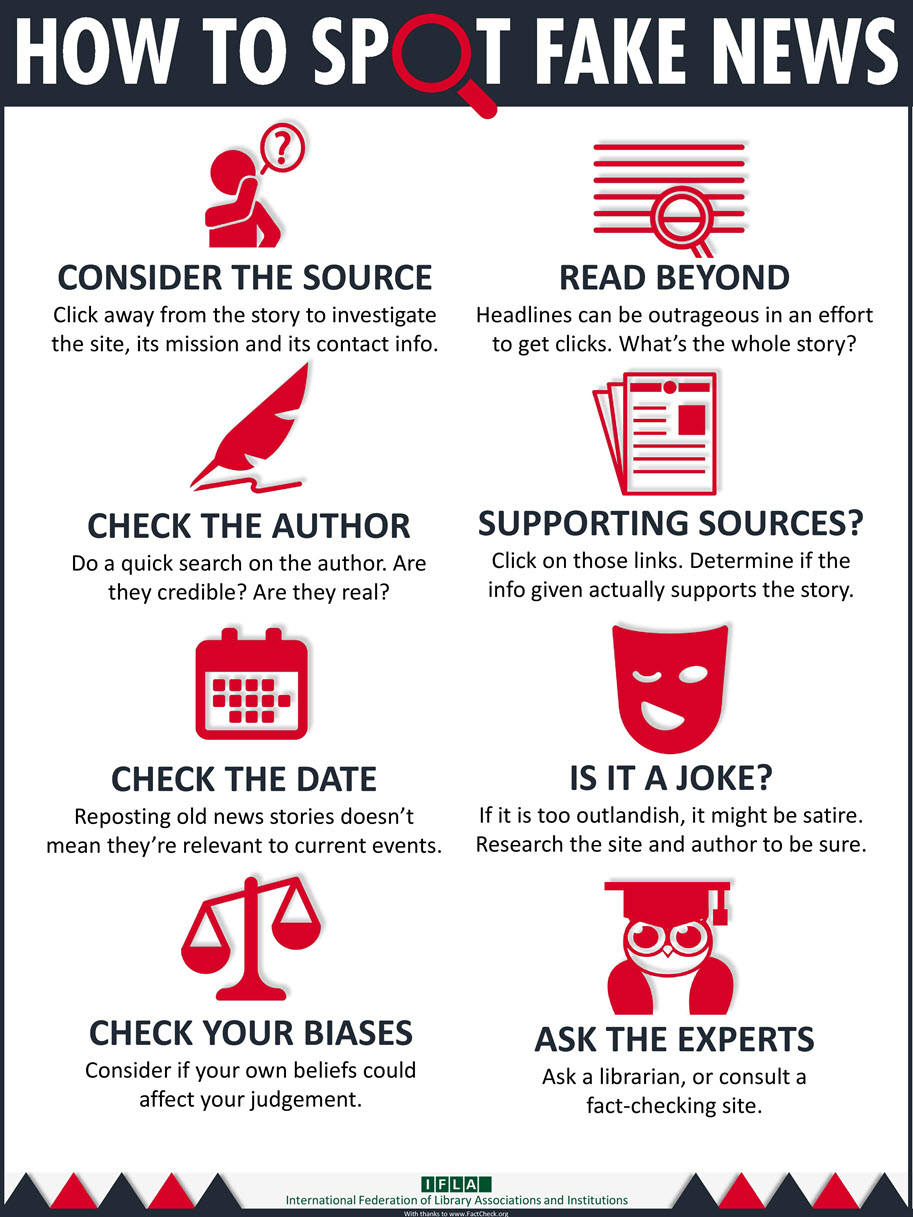There are thousands and thousands of definitions of the term; there is still a debate about what can be considered propaganda and what cannot. To put it simply: propaganda is an organized attempt to influence the beliefs or actions of a mass audience or to shape its attitudes toward a certain topic through communications. I like this definition, but it can also be criticized. That said, it is important to clarify that propaganda is also a set of methods that suppress the adequate, informed, reflective judgment of the individual.
Propaganda always deals with a mass audience. But despite this, the object of propaganda is each individual.
Mass propaganda emerged in the twentieth century. I believe that the starting point should be World War I, when the mass media achieved great influence and widespread coverage. There is a book by the American researcher Philip Taylor, Ammunition of the Mind. Taylor analyzes when propaganda originated - and how people use it during war. He finds that examples of propaganda techniques can be found even in antiquity. Think of the Trojan Horse, which is also an example of propaganda.
Propaganda always deals with a mass audience.
But despite this, the object of propaganda is each individual
Propaganda is not just RIA Novosti or RT, which sit on state money and which depend on the state budget. Propaganda can appear not only in dependent outlets, it can appear in any media - including those not associated with media and journalism. Propaganda is very close to advertising and public relations in its methods and techniques, because both have a certain manipulation of public opinion. However, their goals and motivations are different.
Marina Ovsyannikova and other journalists of state-run media outlets told me that there are no "methodological guidelines. There is so-called "telephone law," that is, calls from a higher authority to a lower one. This does not lead to "methodological manuals," but it does lead to self-censorship by the editors who set the agenda. And censorship in the state media is the kind of antenna that picks up sentiments from above. We do not yet have totalitarian propaganda, but we are moving towards it.
This is a big debate. When we start researching propaganda, we inevitably come up against the ethics of the process. How does propaganda relate to it at all?
In Churchill's government there was a minister of information, Brandon Brecker. During the war he was in charge of British propaganda - and he thought it was good and bad. Good propaganda is well-intentioned, in his context it was Allied propaganda. But could it be that [pro-Kremlin RT editor-in-chief] Margarita Simonyan is also a supporter of the country and Ukrainians at heart? If we go to Simonyan and interview her, she will probably say that her intentions are sincere. But we can't verify that. How do we build a methodological apparatus that would allow us to find out? One of the patriarchs of public relations research in America, Edward Bernays, wrote a book in the '20s called Propaganda - where he said that what we believe and broadcast is education, and what we don't believe is propaganda. I would argue, but this book also illustrates an important problem of propaganda research--the impossibility of verifying the propagandist's true intentions. A propagandist never reveals the true intent of his message; that is his job.



People behave, think and act according to mental manipulation and programming. Industries, mass media, attorneys and the CIA bombards desires, anger, fear, guilt, repeatedly throughout the day. Emotions manipulated by visual images, education, implied threats, high profile staged crimes, false implications of security, entertainment, television …
The press also known as the fourth estate plays a very critical role in educating, informing, entertaining and bridging the gap between the mass community and the executive, judicial and legislative. Hence what is more essential is its stance on policy and choice of theory, …
About the Book Benjamin, Alepho, and Benson were raised among the Dinka tribe of Sudan. Theirs was an insulated, close-knit world of grass-roofed cottages, cattle herders, and tribal councils. The lions and pythons that prowled beyond the village fences were the greatest threat they knew. …
Abstract The media serve the agenda of six corporations that owns them. Just about any source of information that you see, hear or read is controlled by the agenda of the six corporations. They control the country with media propaganda agenda using the illusion of …
Nobody can disagree with the fact that George Orwell’s vision, in his book 1984, didn’t come true. Though many people worried that the world might actually come to what Orwell thought, the year 1984 came and went and the world that Orwell created was something …
Many people of different cultures and religions define themselves not only by what their religious beliefs are but also by what food they eat and the different ways in which they prepare it (Campo 2009). Food is one important factor of everyday life that brings …
Political Attitudes Advocated in 1984 (AP PROMPT) 1987-Some novels and plays seem to advocate changes in social or political attitudes or in traditions. Choose such a novel or play and note briefly the particular attitudes or traditions that the author apparently wishes to modify. Then …
The events of March 5, 1770, dubbed as “The Boston Massacre”, was a tragedy in which 5 Bostonian civilians lost their lives at the hands of British Redcoats. Although the Redcoats, terribly at fault, shot into the masses, the rebellious Bostonians played a role in …
George Orwell’s novel Animal Farm is subtitled “a Fairy Story”, a label that may make the book seem innocent and appropriate for children and classroom settings. However, the title is misleading. Animal Farm is a work of Communist propaganda. It outlines and even encourages the …
Using one of the case studies outlined by Chomsky & Herman in ‘Manufacturing Consent – The Political Economy of the Mass Media’, critically assess the main propositions put forward in their analysis of the mass media. Is the ‘Propaganda Model’ still relevant today? Noam Chomsky …
Propaganda has existed as a method of communication for a long time. It was originally a neutral term used to describe the dissemination of information in favor of any given cause. The redefinition implying its now negative connation arose because of the Soviet Union and …
After the Great Depression in the early 1930’s, it resulted in economic and political instability for post ww1 Gremany. Adolf Hitler utilized fascism to promote his rise to power. Nazi propaganda posters were being used as “Art of Persuasion” during this time. Hitler was no …
The Nazi party, or National Socialist German Workers’ party of Germany, attempted, and were almost completely successful in wiping out the entire culture of the Jewish, and the population of homosexuals, gypsies, disabled, and Slavic people, all due to his simple dislike of them. In …
The role of mass media The term mass media refers to the channels of communication (media) that exist to reach a large public audience (the mass of the population). Mass media includes newspapers, magazines, television, radio, and more recently, the Internet. It (informs people about …
Japan has a very rich history as well as a very rich culture. It was home to famous artists and poets, which gets their inspiration from whatever is happening in the country. One of these writers is Ibuse Masuji, who was the writer of the …
The “Propoganda of Saints in the Middle Ages” article, written by Esther Cohen, goes over many of the methods the Catholic Church employed to gain power over the people in Europe. Cohen goes through the middle ages by describing how the Catholic Church was spreading …
Propaganda is information designed to get people to believe a certain point of view. It does not have to be lies. It can be the truth, though it is only one part of the truth. The British government started to use propaganda at the before …
Abby Hutt HUM 324 1 December 2008 Art as Propaganda in Nazi Germany Having been an artist himself, Hitler understood the potential power of imagery in moving the masses. “We shall discover and encourage the artists who are able to impress upon the State of …
George Gittoes Case Study George Gittoes, born 1949 in Rockdale Sydney, NSW has trained at, The Yellow House, Sydney, NSW 1970-1971, Art Students’ league, New York, USA and The University of Sydney in 1968. George is an artist of many talents, he is known as …
The war was between the Triple Entente-? Great Britain, Russia, and France-?and the Central Powers, which was comprised of Germany, Italy, and Austria-Hungary. The vast majority of Americans strongly designated themselves a neutral nation. They believed themselves morally superior to war and viewed it to …
Future of North Korea Economy: Politics Over Economic Policy The terms starvation, isolation, totalitarianism, and nuclear ambitions combined would remind most people the hermit kingdom in East Asia, the Democratic People’s Republic of Korea, and its Kim dynasty. After the demise of the aged dictator …
Role of Media in Kargil Anshu Bhatia PGP2- 18012 Table of Contents Abstract2 Introduction3 Literature Review3 Discussion of the case5 Analysis and conclusion6 Bibliography7 Abstract This paper attempts at evaluating the role of media in the Kargil war, which broke out in the summer of …
Is Communication competency a skill or an art? Communication competency is a skill that relies on a combination of behavior and knowledge. To communicate effectively, you will need to understand cultural diversity, have good language skills, listening and interpersonal skills. According to David Morley’s essay, …
Abstract Brain drain refers to the large-scale emigration of a large group of talented, skilled and knowledgeable individuals. This situation is also commonly referred to as “human capital flight. ” Globally, some generals factors contribute to this situation. Puerto Rico has his own distinctive factors. …
Abortion: Pros, Cons and Propaganda Abortion is a very controversial matter in our society. In the United States it is legal to abort a baby up until the day of birth. An abortion is the ending of pregnancy before birth which results in the death …
Why Are Teenagers Stressed? BY Testators Can you trust everything you see or hear now-a-days? The media Is full of constant propaganda, propaganda which brainwashes the minds of young people. Children as young as 3 are already worrying about their appearances, as seen on the …
This is a historical, political and social allegory, that is, a story whose characters and events represent or symbolize ideas and events. George Orwell, who worked creating propaganda for the British government during World War II, saw the rise of socialism and Marxism, and the …
A History of Denial is of great value, as it portrays the state of affairs on the footing of legion beginnings and grounds. What really happened during the German invasion of Belgium in August 1914 was, in much item, analyzed to come to a decision …
Propaganda presents information primarily to influence people. It generally does not provide information impartially or completely. Propaganda often presents facts selectively. “Lying by Omission” or sometimes including some untrue stories, thoughts is a general practice in propaganda, to justify an idea or to seek the …
Zieger, R (2001) brings out the American experiences in the Great War describing it as a Mr. Wilson war (p1). When the war broke out in Europe the American people wished for it to remain a European affair. They wanted to remain a neutral force …

Save time and let our verified experts help you.
Hire writer